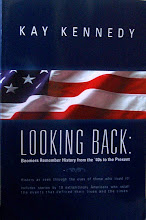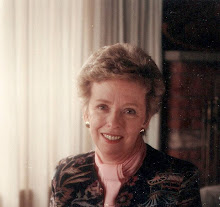Growing up in the late ‘40s and ‘50s, the Cold War created a constant sense of danger in our young lives. It was our boogie-man under the bed. Everywhere there were daily reminders—from air raid sirens that blasted at noon each day to the “duck and cover” drills at school. Nuclear annihilation was a constant fear as conflicts between the United States and U.S.S.R. threatened to escalate into a full-scale war. And that would mean one country or the other would use “the Bomb” in order to win.
We children didn’t know if we would live to see adulthood. Heck, we didn’t even know if we would make it until tomorrow! Fear and anxiety among those of us whose families discussed the news of the day was palpable as we said our prayers each night and climbed into bed.
Even if the Cold War wasn’t discussed at home, social studies classes in school reminded us of the threat.
As some of us reached adulthood during those years and later in the ‘60s and ‘70s, the concept of “zero population growth” took hold as we wondered what kind of future we could actually offer our children. We couldn’t promise them a peaceful existence, nor could we even guarantee a future. That was only one result of the Cold War.
The Boomer generation become a very conflicted group of young people: those who thought it might be possible to achieve lasting peace by becoming social activists; and those who ignored the dark cloud and lived as though the tomorrows were an endless canvas upon which they could paint their ideal life. Even with contrasting opinions, most young adults realized that the world situation was serious and become more involved in politics than any previous generation.
In the late ‘80s, a huge sigh of relief was breathed as our enemy in the Cold War, the U.S.S.R., started to disintegrate. Would world peace finally become a reality?
We hoped so, but the one constant in the history of the world is change, and unfortunately, what goes around almost always comes around again. Fast forward 20 years, and once again Russia is trying to assert its power by invading a smaller country that declared its independence from Russia only two decades ago.
How did this happen? Did Russia decide the time was ripe to strike while the United States was distracted by two wars and its President was in China enjoying the Olympics? Is it that Russia wants to assure its access to the oil fields in Georgia? After all, while they were rebuilding their power, the United States had started making inroads into their previous territory by providing military help and training to Georgian soldiers. Was the United States there because of the oil?
It does appear that oil is the commodity over which future wars will be fought.
But now we have to ask ourselves, is the Cold War starting up again? It would certainly appear to be a possibility. It seems that there will always be something to fight about as long as there are people on this earth—just as there has always been. We can only pray that our children and grandchildren won’t have to live with the constant, crippling fear that defined our lives.
Subscribe to:
Post Comments (Atom)


No comments:
Post a Comment